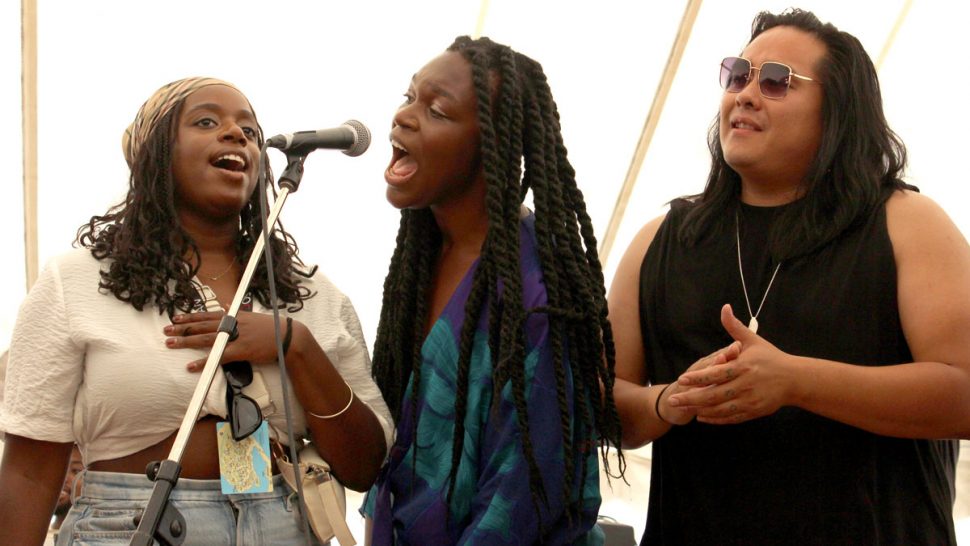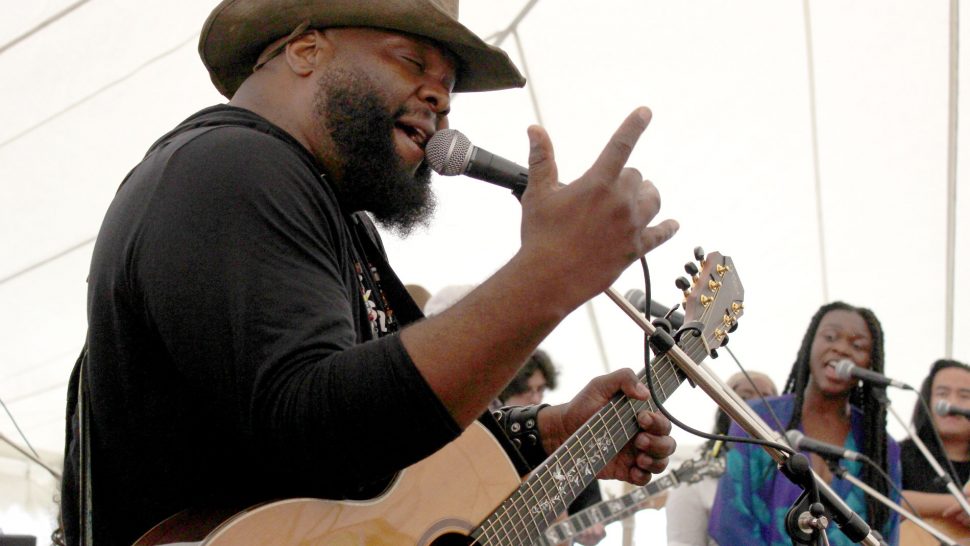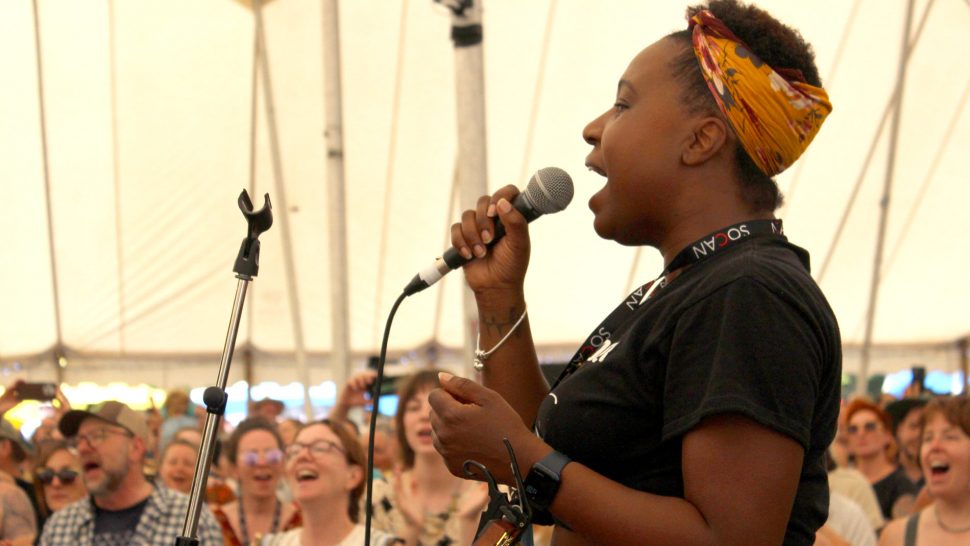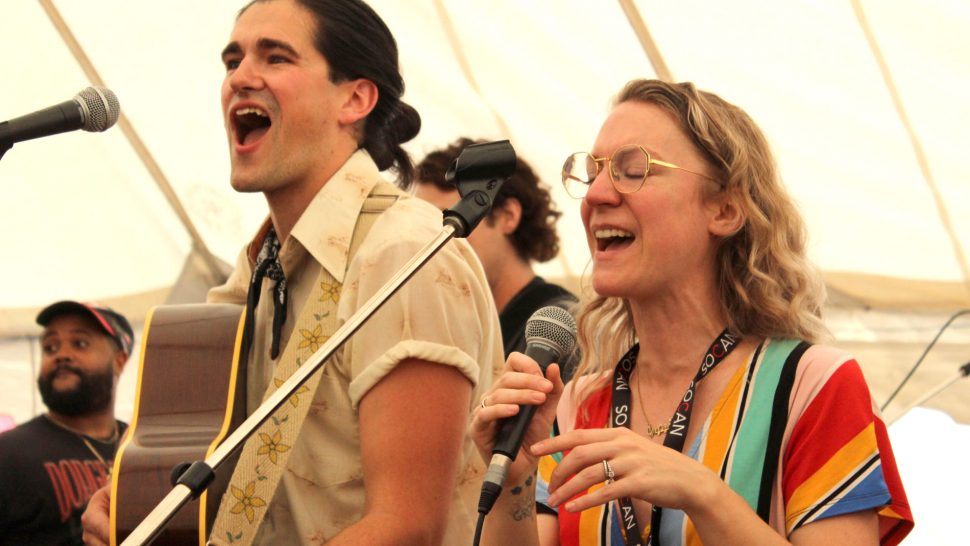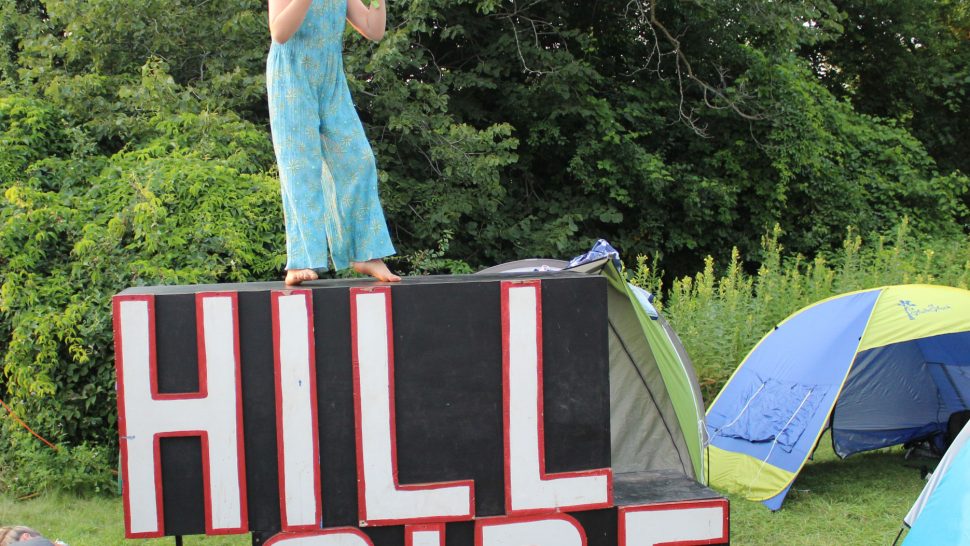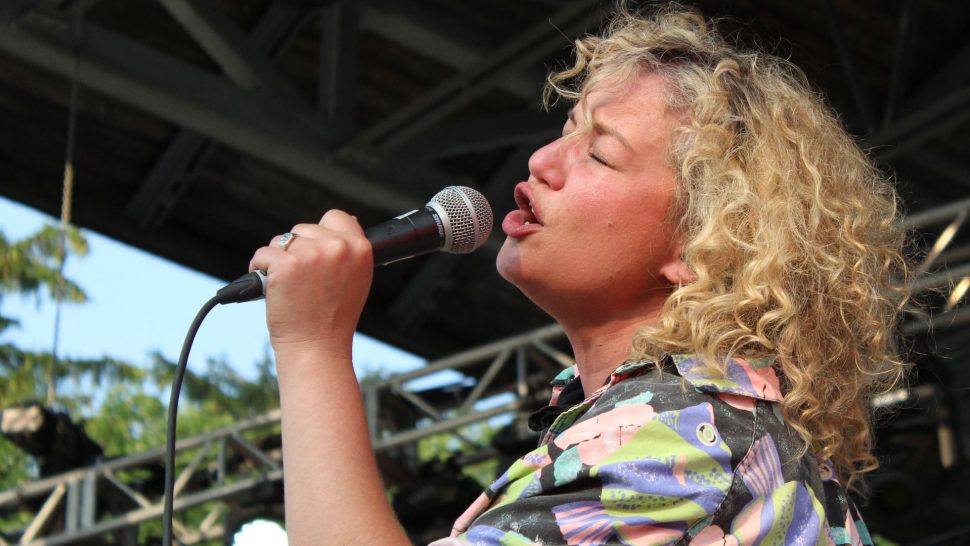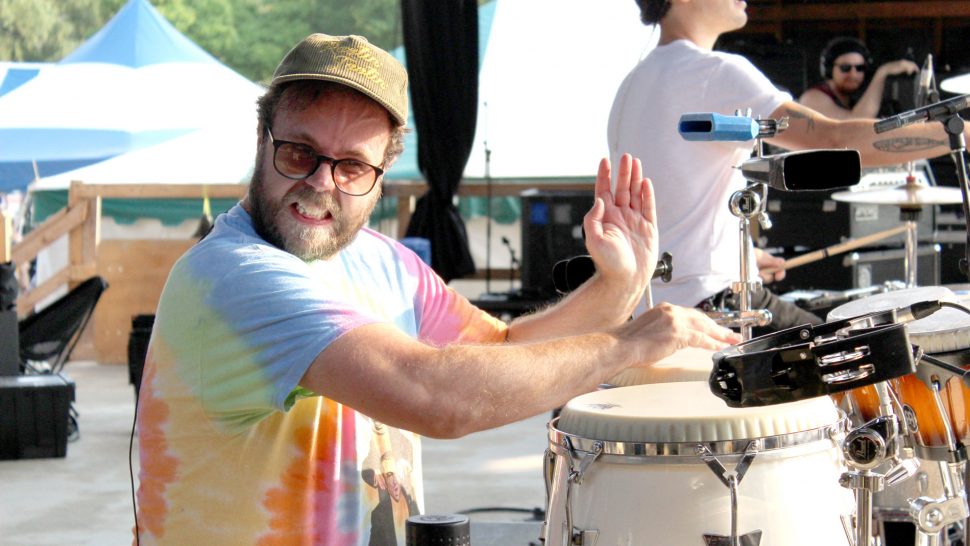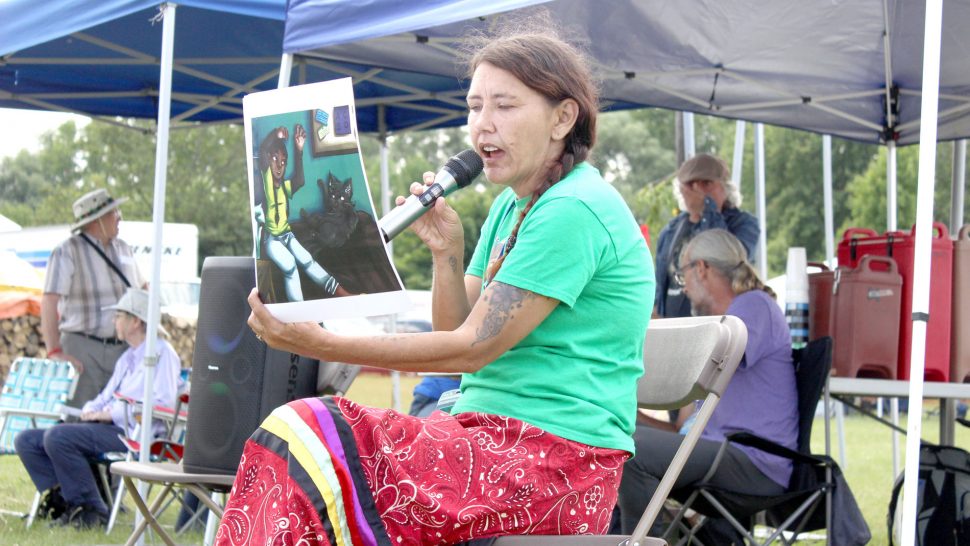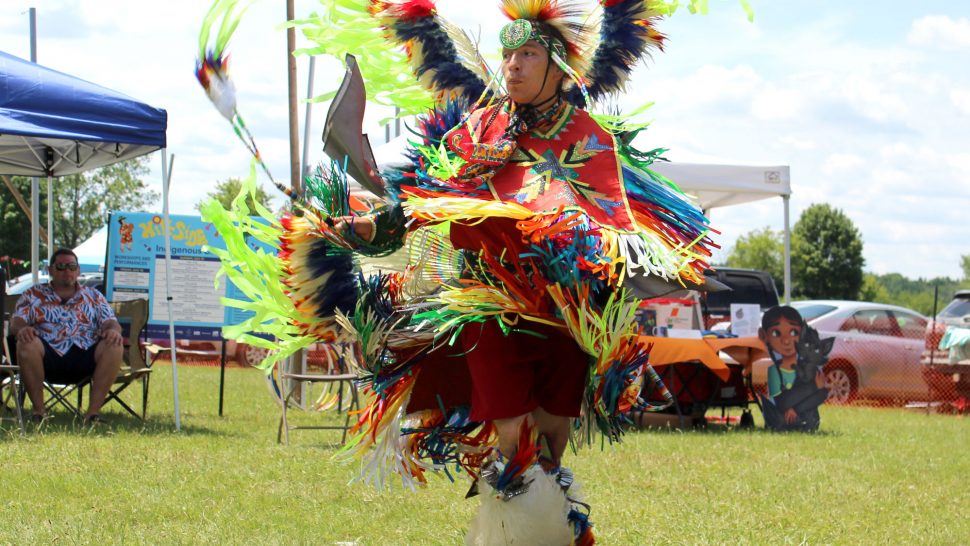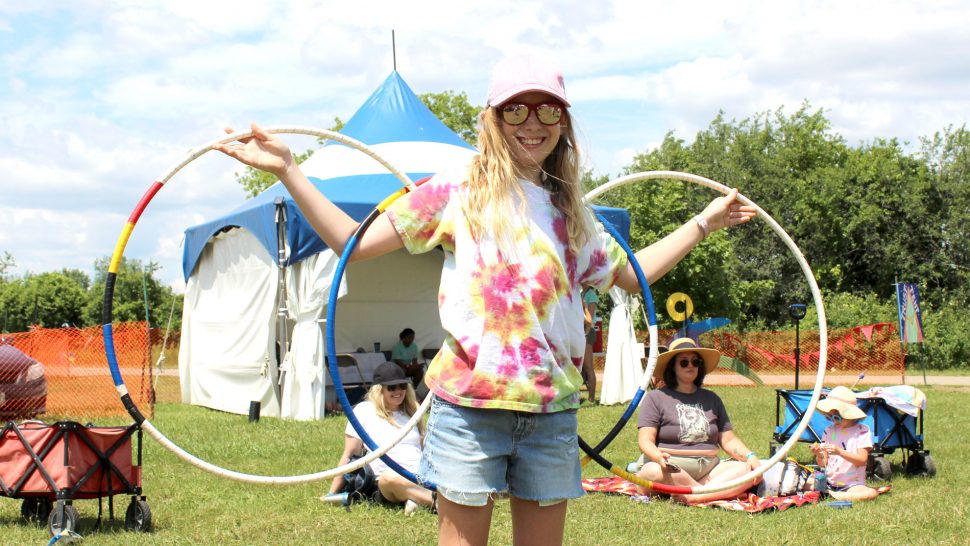GUELPH/ERAMOSA – Since 1987, music-lovers have gathered on Guelph Lake Island for Hillside music festival.
This year’s festival included about 400 performers, almost 1,500 volunteers, and about 7,500 attendees who come together to create a weekend-long experience at Guelph Lake Conservation Area from July 19 to 21.
The festival launched in 1984 at Riverside Park in Guelph, but by 1987 had relocated to the island and become a three-day long festival with camping on-site.
Now, the festival has five stages spread across the island, multiple workshop tents, a shore-side tent for drum and dance, and an Indigenous Circle with a Sacred Fire.
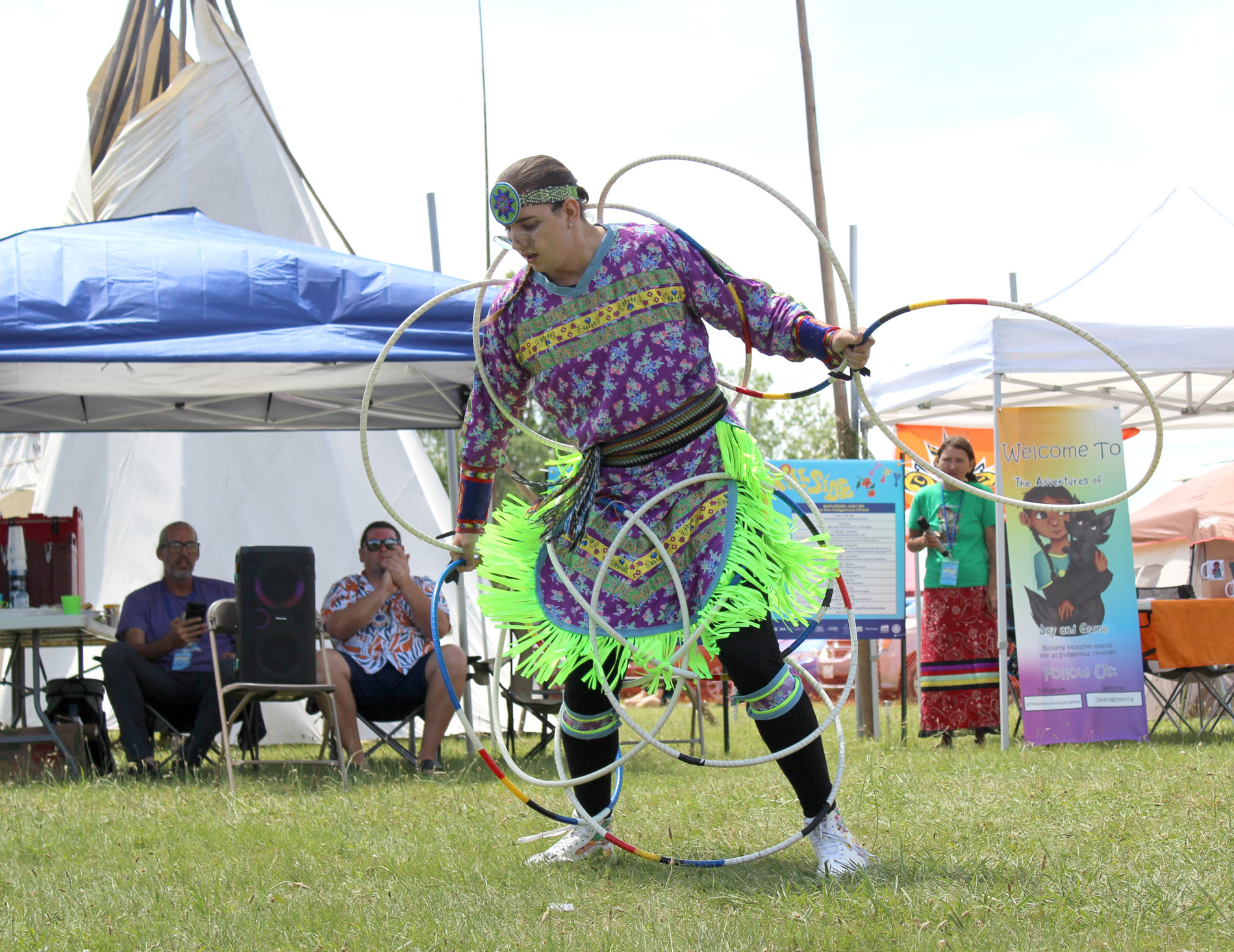
River Christie White performed a hoop dance, explained the significance of the hoops and the dance, and taught a group of children some hoop dancing moves in the Indigenous Circle at Hillside on July 20.
The festival begins with an Indigenous welcome at the main stage, and a range of Indigenous-led workshops, performances and activities take place at the Indigenous Circle throughout the weekend.
There is a children’s tent with kid-focussed performances, activity stations, and a childcare area where parents can drop children off in a safe area with trained volunteers.
There’s a Sun Stage where attendees listen to poetry, laugh at stand-up comedy, and dance quietly during a “silent disco.”
This year’s performers included Guelph’s SHEBAD, Blackie and the Rodeo Kings from Hamilton, Oji-Cree singer-songwriter Aysanabee, Jamaican-Canadian Brampton reggae artist Kirk Diamond, Toronto-based Dwayne Gretzky, Patrick Watson from Montreal, and Five Alarm Funk from Vancouver.

Juno-winning reggae artist Kirk Diamond had the crowd up and dancing during his energetic set on main stage on July 20.
Over 100 workshops were offered throughout the weekend, including yoga, song-writing, bee keeping, bike repair, lessons in ukulele and didgeridoo and a medicinal plant walk.
Sustainability
Hillside has a reputation for its environmentalism, and the festival has received many accolades for its commitment to sustainability, including:
– Festival and Events Ontario’s Best Greening of a Festival every year since 2008;
– The Tourism Industry Association of Ontario’s Sustainable Tourism award in 2023;
– The International Clearwater award for leadership in environmental sustainability in 2019;
– Canada Music Week’s Best Green Operations award in 2016; and
– The Grand River Conservation Authority’s Honour Roll Award for “a sustained record of achievement over an extended period of time” in 2014.
The main stage has been covered with plants for almost 20 years, an initiative fundraised for by a group of Hillside volunteers called the Green Team.
Dahlia Trento sang Deep Purple’s Highway Star during a set on Hillside’s main stage on July 20 with the Guelph JamSchool.
“Roofs made of concrete, pavement and ordinary shingles all reflect heat into the atmosphere, which adds to our planet’s climate change and affects pollution and humidity levels,” officials state.
But living roofs such as the one at Hillside have plants that filter heat, absorb air pollution, add oxygen to the atmosphere, and provide a habitat for birds and butterflies.
According to officials, about 10 per cent of attendees ride bikes to Hillside every year, and an even larger portion ride in on the free shuttles provided by the festival.
Sustainable and locally- sourced food and drinks from about 20 vendors are served on reusable dishes washed by volunteers with water heated by solar panels.
From left, Ollie Darnell, Corinne Cooper and Connor Minogue enjoy some ice cream from Mapleton’s Organic Dairy Farm at Hillside on July 19.
Volunteers also ensure garbage, recycling and compost is carefully sorted.
Volunteers
Volunteers are the backbone of Hillside Festival, each putting in 12 hours of unpaid work to set things up before it begins, ensure things run smoothly throughout the weekend, and take things down when it’s all over.
Many of the volunteers camp together on the island in a community-like gathering dubbed “Volly Village,” where the music and dancing continues into the early hours of the morning.
‘Support Hillside’
Hilllside Festival is a registered charity and not-for-profit, and it held its first 50/50 raffle this year, raising $11,295 to “support Hillside’s mission to celebrate creativity through artistic expression, community engagement, and environmental leadership,” officials state.
Next year’s festival will take place from July 18 to 20, and weekend passes are available for $159 at hillsidefestival.ca/tickets/.





